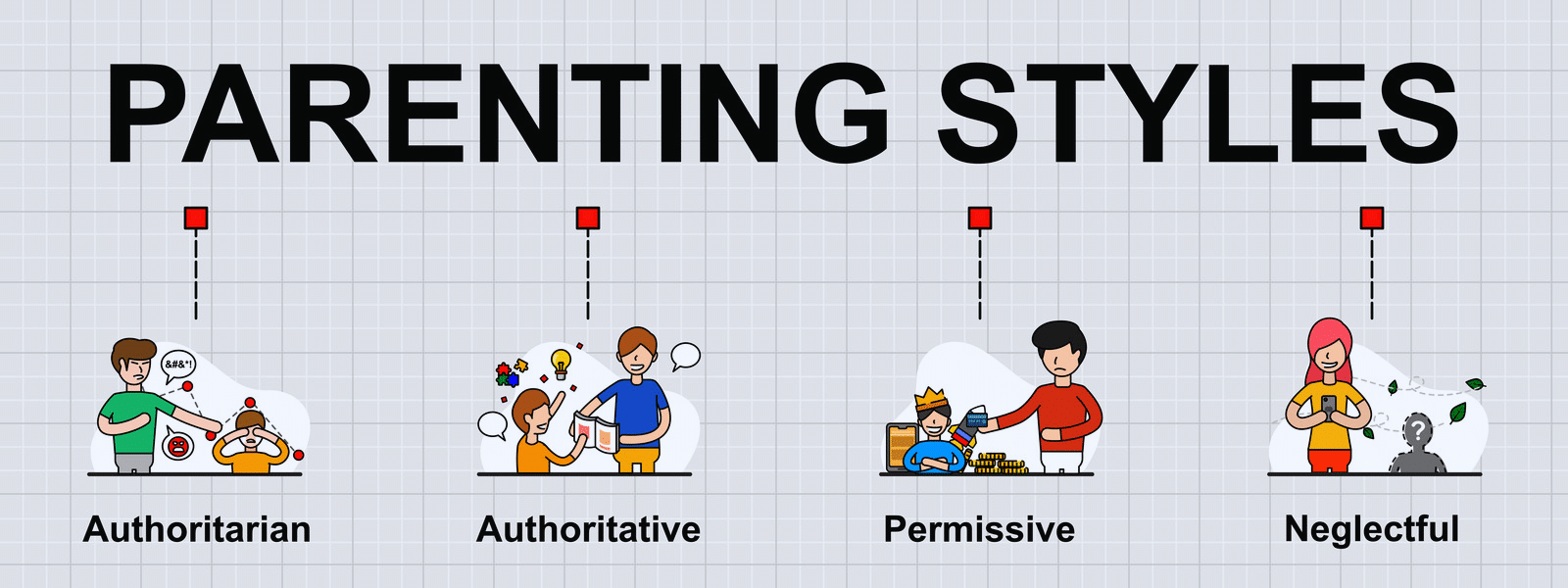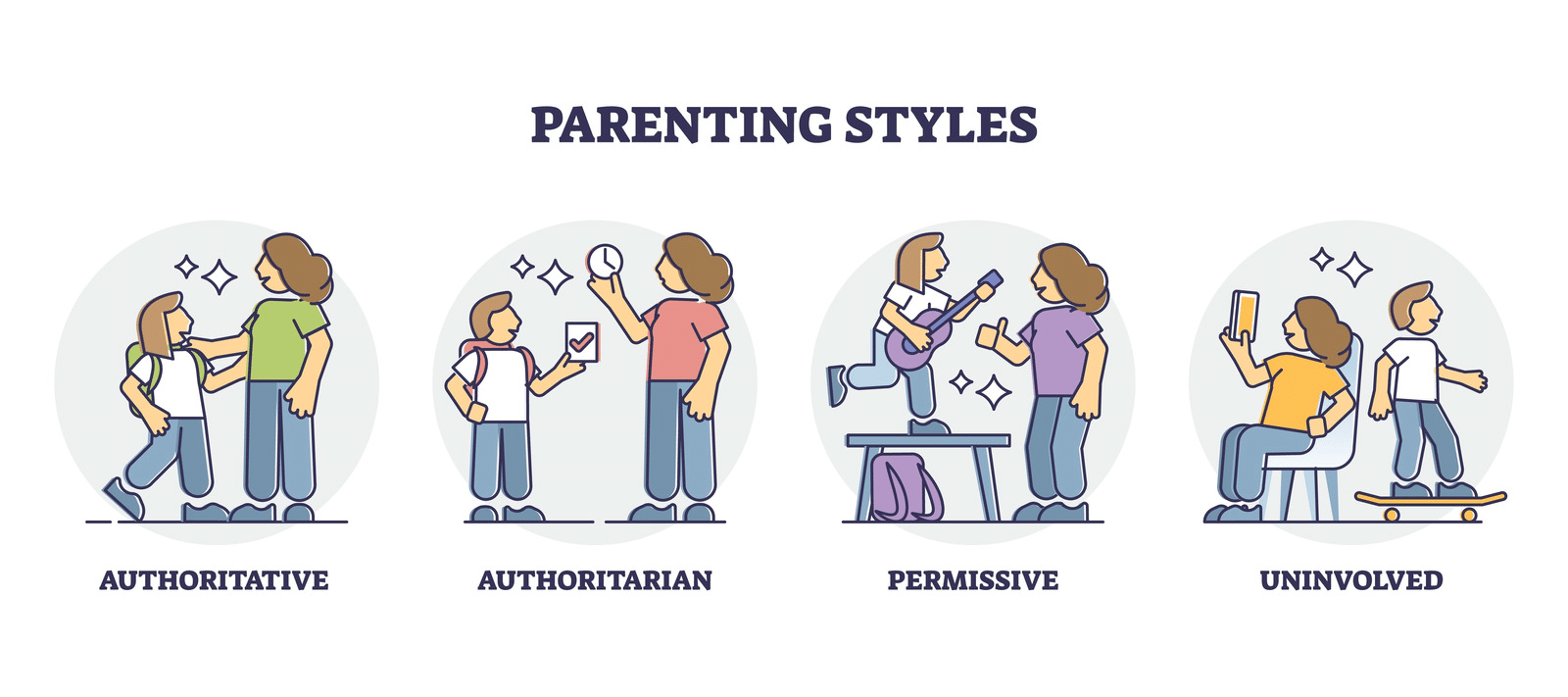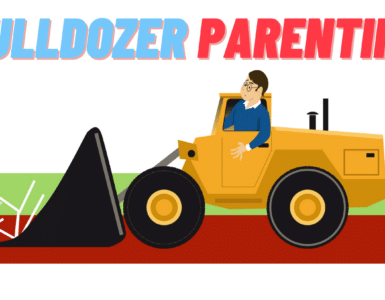Parenting isn’t easy. It’s like trying to navigate a minefield full of toddler tantrums, child meltdowns, and teenage mood swings. You have to be adaptable and extremely patient! It’s also a continuous learning process.
As your child is constantly growing and changing, so is the world around you.
That’s why you should be aware of different parenting styles so that you can understand the positives and pitfalls of each.

There aren’t only three ways to parent, many people are a combination of different parenting approaches and don’t even know it.
But these are the three main styles…
Authoritative Parenting
Authoritative parents are all about giving their child freedom within limits. They encourage children to be independent while still offering support and guidance when needed.
Authoritative parents respect their child’s opinions and viewpoints. They have conversations with their children instead of just telling them what to do. These types of parents have to always make sure that they’re not being too strict and not being too lenient. They strive for a balanced approach to parenting.
The Pros of Authoritative Parenting
· Children are more independent and confident.
· Kids feel safe and nurtured.
· They develop fantastic communication and social skills.
· Children with authoritative parents develop better-coping skills and are better at handling stress and solving problems.
· They’re more self-disciplined, happier, and have a stronger sense of self.
· Authoritative parents have a good relationship with their children built on communication and trust.
· Kids are more likely to be successful and take on leadership roles.
The Cons of Authoritative Parenting
· Authoritative parenting takes a lot of effort, time, patience, and self-awareness. There’s no one size fits all approach. Parents need to constantly reevaluate and change as their child develops.
· It can be hard to find the right balance between allowing your child to have freedom while also maintaining rules and boundaries. Some parents might end up being too strict or too lenient, and this can cause a child to feel confused and upset.
The Montessori and Reggio learning approach promotes an authoritative parenting style because it is the more balanced approach that encourages a child to be independent while still giving them boundaries.
ALSO: The Link Between Social Media and Teen Depression
This style is very similar to how I teach my students. I have found that it works well for a variety of different children, from the more quiet, introverted children to high-energy kids that like to push boundaries and buttons.
Permissive Parenting
Are you more like a best friend than a parent? Then you might have a permissive parenting style. Permissive parents let their children have lots of freedom. They’re not neglectful, but they may avoid setting clear limits and are very lenient. They tend not to have many rules. The rules they do have can easily be broken.
They tend to be the fun parents that all their kid’s friends want to hang out with. “Bobby can eat Oreos for breakfast and stay up until 4 am watching horror films. Let’s stay at his house!”
The Pros of Permissive Parenting
· Kids have a good relationship with their parents and are more likely to tell them things that most kids wouldn’t tell their parents for fear of getting into trouble.
· Permissive parenting makes children more independent and self-reliant.
· Children are more creative and good at expressing themselves.
· There’s less conflict at home since kids have a lot of freedom and tend to get their way.
The Cons of Permissive Parenting
· Children with permissive parents have a higher chance of lacking self-discipline
· They’re more likely to engage in dangerous behavior.
· Kids are more likely to act out for attention
· They’re more likely to struggle academically.
· Kids can end up with unhealthy eating habits and have a higher risk of health issues due to not eating or sleeping well.
· They’re more likely to have behavioral problems at school and around any type of authority.
· Children with permissive parents can grow up feeling directionless and might struggle to find a purpose in life.
Although kids might initially find permissive parenting fun, they need some structure and guidance to help keep them safe and teach them how to navigate the world. They also need a consistent eating and sleeping schedule because if they don’t have that, it can affect their mood, focus, physical health, and mental health.

Authoritarian Parenting
On the completely opposite end of the parenting spectrum is authoritarian parenting. Authoritarian parents are very strict and controlling. They tend to have very high expectations and lots of rules.
Authoritarian parents talk at their kids instead of to their kids. Their motto is, “What I say goes!” They don’t take their child’s desires and opinions into consideration; it’s all about what the parent wants.
The Pros of Authoritarian Parenting
· Children with authoritarian parents are more well-behaved and obedient.
· They do well at school since they’re good at following directions and focusing on tasks.
· They’re quiet and won’t annoy people in public settings.
The Cons of Authoritarian Parenting
· They have low self-esteem and terrible confidence.
· Kids with authoritarian parents can end up developing mental health issues such as anxiety and depression.
· Children will have a hard time making decisions.
· They will find it difficult to give their opinions and express themselves.
· Permissive parents tend to be emotionally distant, which can impact a child’s ability to have healthy friendships and relationships.
· Kids will have a harder time problem-solving.
· They will end up extremely hard on themselves.
· All those strict rules can end up backfiring and make a child defiant and angry, especially when they become a teenager.
All the students I have taught with these types of parents struggle in social situations and have low confidence. I had authoritarian parents and haven’t spoken to them in over a decade, so that tells you just how effective this style of parenting is. It’s a great way to ensure that your child will need therapy later in life!
You don’t have to fully be one of these parenting styles. You can be a blend of different approaches. It’s possible to change depending on your child and the situation. Just be sure to avoid the “fourth style” which is called neglectful parenting.
What style of parenting best fits you? Are you a blend of different parenting styles? Which one do you think is best? Let us know in the comments below!











Add comment